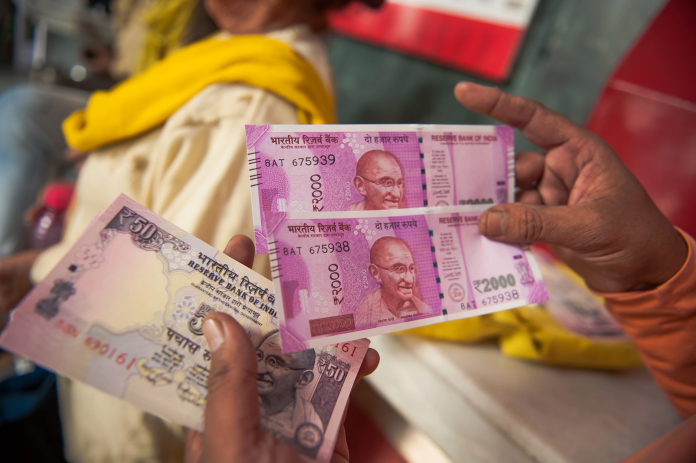The month of May is coming to an end in just five days. As the new month begins, there are both big and small changes to be seen. As a result, it is critical that you are aware of the changes that will take effect in early June, as they will have a direct impact on your wallet. The rules will change in these areas, from banking rules to purchasing gold. Let us know how the month of June will affect your finances…
1- Expensive third-party vehicle insurance
Let’s start with the first change that increases pocket money. So, as of June 1, 2022, third-party vehicle insurance will be more expensive, requiring you to pay a higher insurance premium. These increased rates will apply to owners of both four-wheelers and two-wheelers. The central government raised the premium rate for third-party motor vehicle insurance on Wednesday.
Premium based on engine capacity
Following the Central Government’s decision, a higher amount will be required to be paid to insure the car based on the engine. The premium for motor insurance was previously increased for the 2019-20 fiscal year, according to a notification issued by the Ministry of Road and Transport. According to the ministry, vehicles with engines less than 1,000 cc will now have to pay a fixed premium of Rs 2,094 for third-party insurance, up from Rs 2,072 in 2019-20. Aside from that, the third-party insurance premium for cars with 1,000 to 1,500 cc engines has been raised from Rs 3,221 to Rs 3,416. The third-party insurance premium for vehicles over 1,500cc has increased marginally to Rs 7,897 from Rs 7,890.
According to a Central Government notification, the government has changed the rate of third-party insurance premium not only for four-wheelers but also for two-wheelers. According to the notification, the premium for bikes with engine capacities ranging from 150 ccs to 350 ccs will be Rs 1,366, while the premium for two-wheelers with engine capacities greater than 350 cc will be Rs 2,804.
2- The second gold hallmarking phase
Let’s move on to the second major change. So, let us inform you that the second phase of gold hallmarking will begin on June 1, 2022. While previously sharing this information, the government stated that the second phase of gold hallmarking will begin in early June, with the requirement to prove the purity of gold.
Three new carats and 32 new districts
According to the report, the Ministry of Consumer Affairs stated that in the second phase of mandatory hallmarking, three additional 20 carats, 23 carats, and 24 carats of gold jewelry will be subject to 32 new districts. After the first phase is completed, an Assay and Hallmark Center (AHC) will be established. Let us remind you that the first phase was launched by the nodal agency Bureau of Indian Standards (BIS) on June 23, 2021, by implementing mandatory gold hallmarking in 256 districts across the country. Every day, more than 3 lakh gold jewelery is hallmarked with Hallmark Unique Identification (HUID) in these districts, according to the report.
3- An increase in the interest rates on SBI home loans
If you are a customer of the State Bank of India (SBI) or intend to take out a home loan from SBI, the start of the new month will increase your expenses as well. In fact, SBI has raised its home loan external benchmark lending rate (EBLR) by 40 basis points (bps) to 7.05 percent, with the RLLR remaining at 6.65 percent plus CRP. According to information on SBI’s website, these higher interest rates will take effect on June 1, 2022. It should be noted that the EBLR was previously set at 6.65%, while the repo-linked lending rate (RLLR) was set at 6.25 percent.
4- Any applicable India Post Payments Bank Charges
The India Post Payments Bank (IPPB) has announced the implementation of the Aadhaar Enabled Payment System (AEPS) issuer fee. This fee will go into effect on June 15, 2022. The Department of Posts governs India Post Payments Bank, a subsidiary of India Post. The first three AEPS transactions each month, including AEPS cash withdrawal, AEPS cash deposit, and AEPS mini statement, will be free under the rules. Following the free transactions, each cash withdrawal or cash deposit will be charged Rs 20 plus GST, while a mini statement transaction will be charged Rs 5 plus GST.
5- Beginning June 1, Axis Bank’s savings account rules will change. Another significant change is that the average monthly balance in the account will be increased from Rs 15,000 to Rs 15,000 for easy savings and salary programs in semi-urban and rural areas. The fixed deposit has been increased to Rs 25,000 or Rs 1 lakh. It has been increased from Rs 15,000 to Rs 25,000 or Rs 25,000 for Liberty Savings Account. The new tariff plans will go into effect on June 1, 2022.



